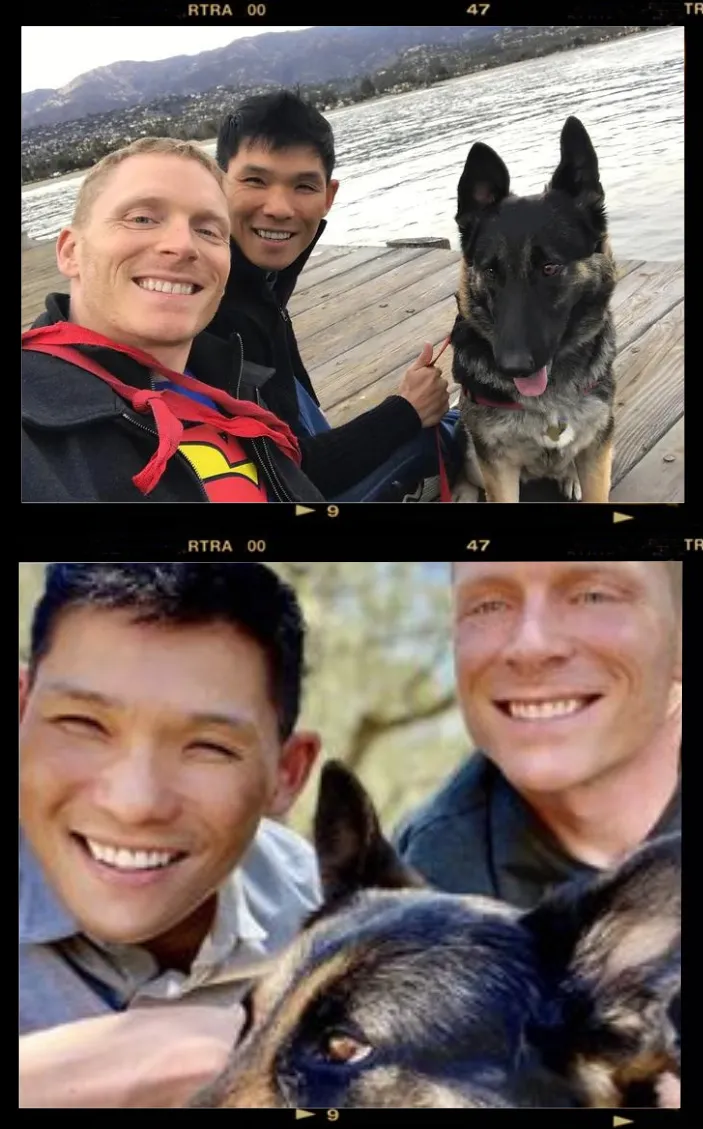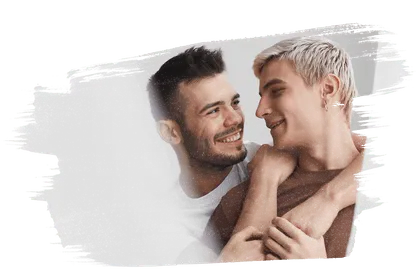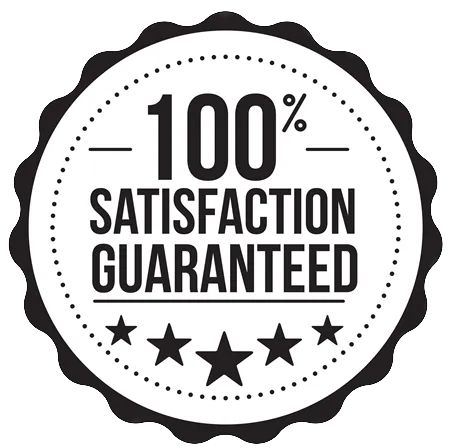
Sexual and Emotional Connection Toolkit
Work through your differences, rekindle your fire, and have a more enjoyable sex life with less pressure
Rekindle your fire, have satisfying sex, and work through your differences using a proven roadmap that actually resolves your issues, not just cover them over for a few months, taking you back to square one.
I had to teach myself how to have a good gay relationship
When I was a gay teenager, I remember going to the Barnes and Noble bookstore desperately searching for tools to create a healthy, happy gay relationship. I wanted to start dating like my straight friends were doing.
I could tell that I had no idea how to connect to another gay guy. When I met my first boyfriend, Mike, I felt like I was giving in all the time. He worked at a supermarket deli, and had no interest in going to college someday. I was applying to universities and felt like we were not on the same page.
We just felt disconnected all the time.
Though he and I didn't last very long, things got better when I found support from other gay guys who knew how relationships work. I needed a community of folks I could relate to.

My husband and I found practical tools and skils
When I met my current husband, Alapaki Yee, our lives changed when we found practical tools and skills to implement in our relationship. We were both licensed therapists at the time (and still are), but we had to learn like all other couples ways to not let things build up.
Through the Gottman Method, we discovered how to manage our conflicts around our cultural differences. Through regular practice, we built habits and routines into our weekly interaction that helped us to provide to one another's needs easily without causing conflicts. Having now been together since 2005, I'm proud of the life we built together, including our "challenging" German Shepard, Shadow.
We took our lessons to the rest of the community
and published research
In 2007 we created a supportive Institute for gay men to create awesome relationships. It's called the Gay Couples Institute and is now the only relationship Institute in the world to publish outcome data on its success rate.
As soon as we opened our doors, gay couples asked if they could fly to our office in San Francisco to do intensive weekends. The resources didn't exist where they lived, or they specifically wanted our proven 9-step method.
Our newest and most successful intensive experience is designed to get you out of your current element at home so that you can use new skills to make conflict productive, reignite your sex life, and build trust by connecting emotionally.
Everything from our 9-step "Gay Relationship Revolution Program" is included in just one experience, along with follow-up support to make the gains last long-term.
'
Join us in this amazing opportunity, and realize the relationship happiness you deserve.To your future together,
Sam Garanzini, and Alapaki Yee
Cofounders, Gay Couples Institute
Certified Gottman Couples Therapists
How can you work through your sexual differences, and have a more productive sex life with less pressure?
How can you work through your sexual differences, and have a more productive sex life with less pressure?
Sex is the number one reason LGBT couples have approached us for help, yet it is the thing our therapy profession seems to know the least about. When couples asked us for help reigniting their sex lives, we knew about research showing that same-sex couples talk more about sex, and thus have it more than their heterosexual counterparts.
We created many exercises that got couples talking even more about sex. This seemed logical. But upon talking about it even more, did they necessarily have more sex?
Some did.
We informally took a look at those who had more sex after talking about it, as compared to everyone else. What was the difference?
Touch.
At face value this seems logical... but we wondered... what kind of touch? The answer seemed to be a sexual comfort and confidence that each person had with their own body prior to initiating touch with a partner.

So how do you teach people to...
- Get the passion back when sex seemed to dwindle after things got serious...
- Get back on the same wavelength and feel more attracted to one another...
- Bring back the playful physical fun, cuddling, and expression of love through touch...
At this point, the therapy field abruptly runs out of answers.
Therapists often treat discussion of sex in a distant manner that perpetuates the principles of Western shame, as opposed to championing the joy that all of our bodies are pre-wired to express.
To answer these questions about feeling sexual again, we had to stop looking to the traditional field of psychology for answers.
Instead, we found answers for how to increase sexual expression and understanding in more "modern" approaches of...
- Mindfulness...
- Tantra...
- Massage...
- Taoism...
- Kundalini Yoga, and...
- Breathwork
We had to go out of this psychological field to get these answers, and now our goal is to help you integrate these findings into your own understanding of yourself.
That self-understanding is what this toolkit aims to accomplish, and you can get started moments from now just by clicking the link below...
TWO Courses, In One Bundle...

Lesson 1 - Relationship Mindset, Life Purpose, Becoming A Self-Reliant Person
How To Become A Truly "Self-Reliant" Person
How To Take Control Of Distorted Thought Patterns
How To Identify What Is Really In Your Control
How To Identify Your Purpose In Life

Lesson 2 - Boundaries, Social Media, Surrounding Yourself With Like-Minded People
How boundaries work, and how you can define and assert yours
What social media does to our boundaries..
Easy ways to relate to others, whether you're single or in a
relationship...
How to build a community to make dating so much easier, and draw other LGBT individuals closer to you who respect your values...

Lesson 3 - Conflict As The Door To Solid Emotional Connection
How to identify whether this is a conflict even worth getting into...
Pick up on your 'shame' triggers, and stop others from pressing that button...
How to bring stuff up, and identify partners who can 'handle it'...
How to finish a conflict productively, without getting defensive...

Lesson 4 - How Do You Know If They're 'The One'? Creating Solid Long Term Connection
How to recognize whether a date is serious about you
How to create a relationship that's actually going somewhere...
How to become more present, and focus on relating, and less on a relationship...
How to identify how your core beliefs impact your relationship views...
Discover how successful relationships set goals by concentrating on creating new values together...

Lesson 1: Feeling Sexy Again
For many LGBT people, it takes a lot of strength to admit that there's more to learn in the realm of sex. We wanted to set the tone for this program with a new intention: "Yes, and..." rather than "Yeah... but..." attitude and mindset. What gets in our way as we try to express our sexual drive is actually...
Ourselves!
The largest sex organ in our body, our BRAIN, ends up becoming our worst enemy. In this lesson we show you how to get out of your own way, and feel like a person whose desires are valid, and to be enjoyed...

Lesson 2: Understanding Your Relationship with Touch"Brakes" and "Accelerators"
LGBT people are demanding and critical of our bodies. And often we can be very critical of our bodies. This critical approach toward our bodies negatively influences our willingness to have sex. This dynamic gets more complicated with a partner, where one wants to initiate more than the other. In this video, we talk about the research from Emily Nagorski, and "spontaneous desire" versus "responsive desire" in her book "Come As You Are." Watch this video you'll start to apply these types of desires to your body, and let your body off the hook, so to speak.

Lesson 3: The most fun conversation you'll ever have before sex
The EASIEST way to initiate deep and intense sexual connection is through connecting vulnerably beforehand. This structured conversation will assist just that.
You will...
Talk through how you want to feel in the relationship post-sex.
Voice your boundaries, desires, and any worries associated with your sexual status.
Connect to the emotion and meaning behind the coming experience.
Post-session, make sure to check in with yourself and your partner to discuss how the experience was, what you learned, and how to move forward with improved communication.

Lesson 4: "Play, not pray..." Creating space for all types of sexual expression
This lesson teaches you, and your partners, how to create space for desire in any shape and form in which it reveals itself.
You'll discover...
How to create space for kink, BDSM, non-monogamy, and role-playing without ever going outside of your (or your partner's) comfort zone...
How other couples have learned to talk through seemingly "taboo" discussions, without triggering one another's shame...
How to avoid the sex-negative in predominantly Anglo cultures, and become your own 'culture'...
How Buddhism, Kundalini yoga, Taoism, and Tantra have already helped figure out the answers to most of our sexual desire questions over 2000 years ago...
Here's what is going to happen next.....
Scroll down and take a look at the modules included in this new Sexual and Emotional Connection Toolkit.
Then click the "Enroll In Course" button to secure your spot, and begin immediately working on your sexual and emotional connection you experience with your partner.
FIRST COME, FIRST SERVED...
This Toolkit is only open for a limited time per year due to the opportunity for our participants to get direct help from us while taking the course.
TEST IT OUT
Not what you were looking for? No problem. You're protected by our No-Questions-Asked 30-day guarantee.
Click through and enroll, and start working through the lessons moments from now. Just let us know if it wasn't a good fit.
$197
$197
BONUS Content
BONUS Live Meeting: Private Session w Alapaki Yee, LMFT - Certified Gottman Couples Therapist ($500 value)

Want help applying the lessons to your unique situation? No problem. Once you get through 50% of the course, you'll have the opportunity to schedule a meeting with Alapaki Yee, the cofounder of the Gay Couples Institute. Alapaki has helped over 4000 couples since 2007, and has a wealth of knowledge to help you quickly get your sexual and emotional connection going again.
BONUS #2: 5-Day Connection Challenge Videos ($100 value)

Get access to our 5-Day "Build A Solid Connection" Challenge videos, where we walked our latest cohort through the most important steps one can take to emotionally connect with potential partners. This Challenge is perfect for those who are single and trying to find quality potential partners...
BONUS #3: 5-Secrets to a Great Gay Relationship ($100 value)

Want a workbook full of exercises you can start using immediately? Download our 80-page manual that shows the exact structure we use with our 90-day Gay Relationship Revolution Program clients. The manual is full of exercises proven to make conflict more productive, while making you feel like friends again.
How much is it worth to immediately improve your sexual and emotional connection with a partner?
Many people spend months (or years) in turmoil caused by poor relationships, or being unhappily single.
The costs of divorce seem to rise year by year, in some countries reaching over $30,000 on average.
For this reason, we've made it possible for all LGBT individuals to get access to the knowledge in this toolkit for a FRACTION of that price -
just $197 due today.
just $197
due today.

100% Satisfaction Guarantee Register for this course without risk. Complete 10% of the content, and If you’re not completely satisfied, write to us and we will make a refund. We’re that confident you’ll find this learning experience to be all that’s promised and more than you expected.